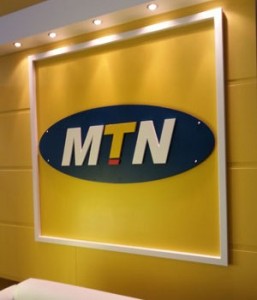Respite may be underway for Internet Services Providers (ISPs), if the telecoms regulator, Nigerian Communications Commission (NCC) puts paid to its assurance at a stakeholders’ forum in Lagos on Wednesday.
The Commission had agreed at the forum to develop a new and proper pricing structure for high speed Internet services in Nigeria, ahead of expected jump in broadband penetration.
Before now, several ISPs had been crying against what they described as unhealthy competition in the Nigerian Data segment, saying absence of a least price limit or Data price Floor (DPF) is closing their businesses.
Besides, last year’s tactical move to recalibrate the DPF failed to the pressure of the national Assembly who stoutly faulted it, thus forcing the regulator to stop the review at a time MTN Nigeria had given notice of price change to its subscribers in an sms.
According to them, the absence of DPF has caused serious confusion in the industry as some major Network Operators (MNOs) are relying on the floorlessness to give out bountiful data at funny prices even though many of the subscribers find it hard to use the same largesse.
In an interview with the immediate former managing director of Spectranet 4G LTE, Mr. David Venn on the matter, he noted that lack of DPF is part of the reasons why the much needed investments and network upgrade and expansion on data services are not happening because no company can risk investment when the managers are not sure of recouping.
However, NCC explained during the forum that in line with its mandate of creating an enabling environment and promoting fair competition in the telecoms industry and in line with the strategic objectives of the National Broadband Plan, it has appointed Messrs’ KPMG to conduct a study on the subject matter.
NCC Executive Vice Chairman, Prof. Umar Danbatta at the meeting noted that the emerging review will not only ensure the affordability and availability of Broadband but also ensure fair competition by checking price discrimination, excessive pricing, predatory pricing, margin squeeze and price fixing amongst other things.
Giving further insight on how it is going to work, a Partner in KPMG, Segun Sowande, explained that the Bottom-Up (BU) methodology will be adopted in developing the cost mode, which entails building up costs from many detailed components, and from the costs of each.
He said the BU model will look at demand; geographical data; distance; cost splitting and leased line cost (LLC). KPMG explained that Geographical data defines the nodes locations (and hence fibre distances), while the demand for services defines how many routers and multiplexers, among others are needed.
KPMG added that the numbers and distances define the total cost (volume x cost per unit or per km), while the total cost is then spit: the core network is split to broadband services, voice services, as well as leased lines. They added that the remaining leased line costs are broken down to the services, based on the numbers, the speed and distance of each leased line type.
Though NCC did not give time frame when the report will be ready, stakeholders according to their body languages are more interested in the provision of broadband infrastructure enabling environment by the three tiers of governments after all.









